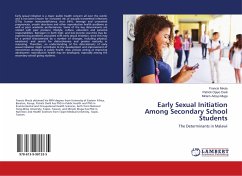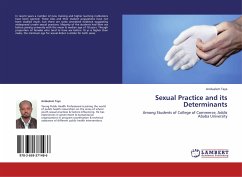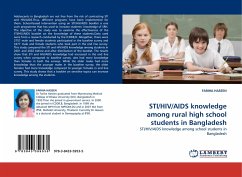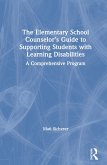Early sexual initiation is a major public health concern all over the world, and it has been known for increased risk of sexually transmitted infections (STIs), human immunodeficiency virus (HIV), teenage and unwanted pregnancies, unsafe abortions and other reproductive health problems as well as poor academic performances. Some of the key determinants are related with peer pressure, lifestyle, culture, education and parental responsibilities. Teenagers in both high- and low-income countries may be experiencing problems associated with early sexual initiation, since this may be a period characterized by a number of changes, including physical, emotional, and search for distinctiveness and greater maturity in reasoning. Therefore, an understanding of the determinants of early sexual initiation might contribute to the development and improvement of intervention strategies in public health. Also, policies aiming at improving adolescents' reproductive health may be developed, especially among the secondary school going students.
Bitte wählen Sie Ihr Anliegen aus.
Rechnungen
Retourenschein anfordern
Bestellstatus
Storno








